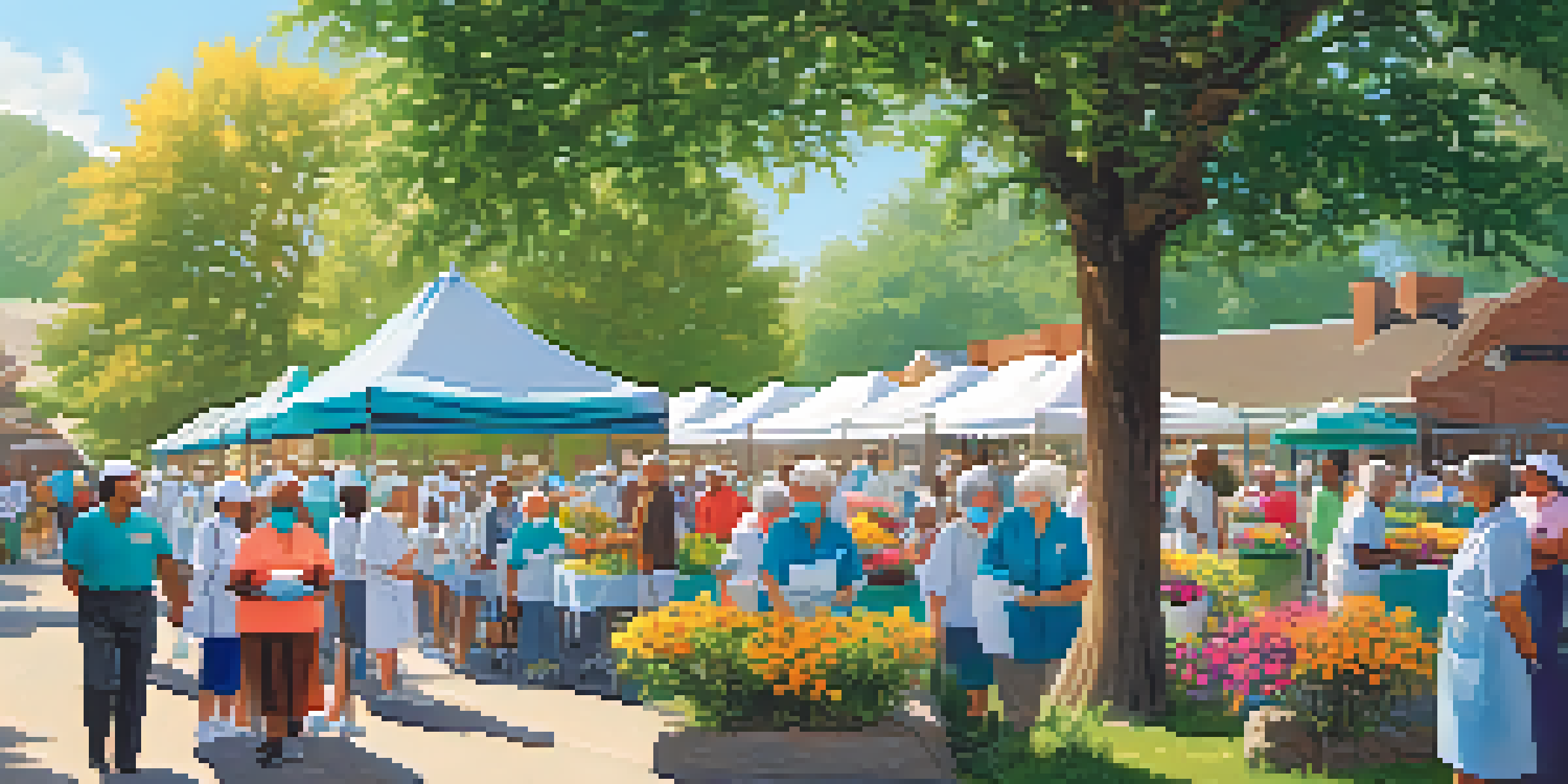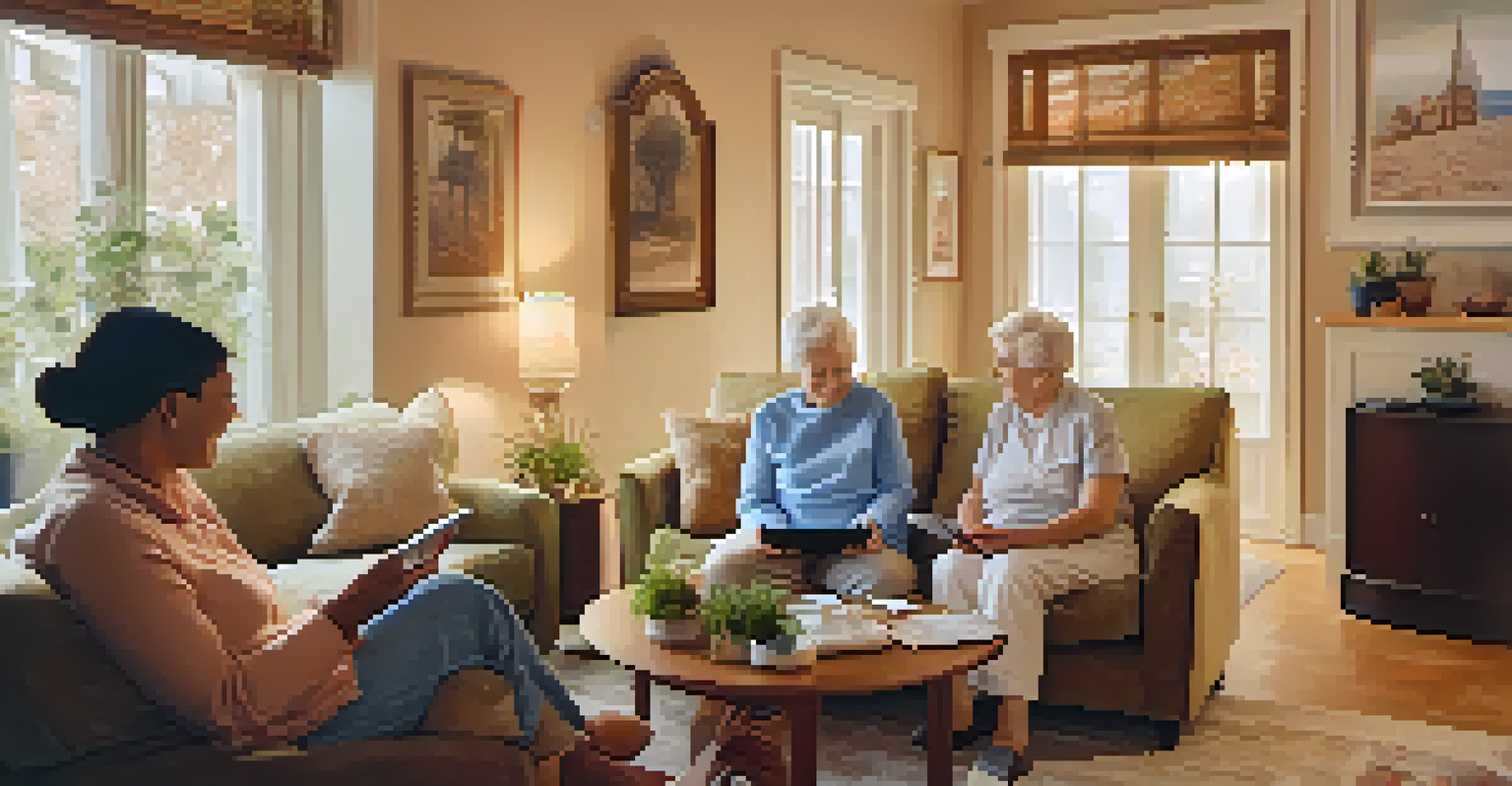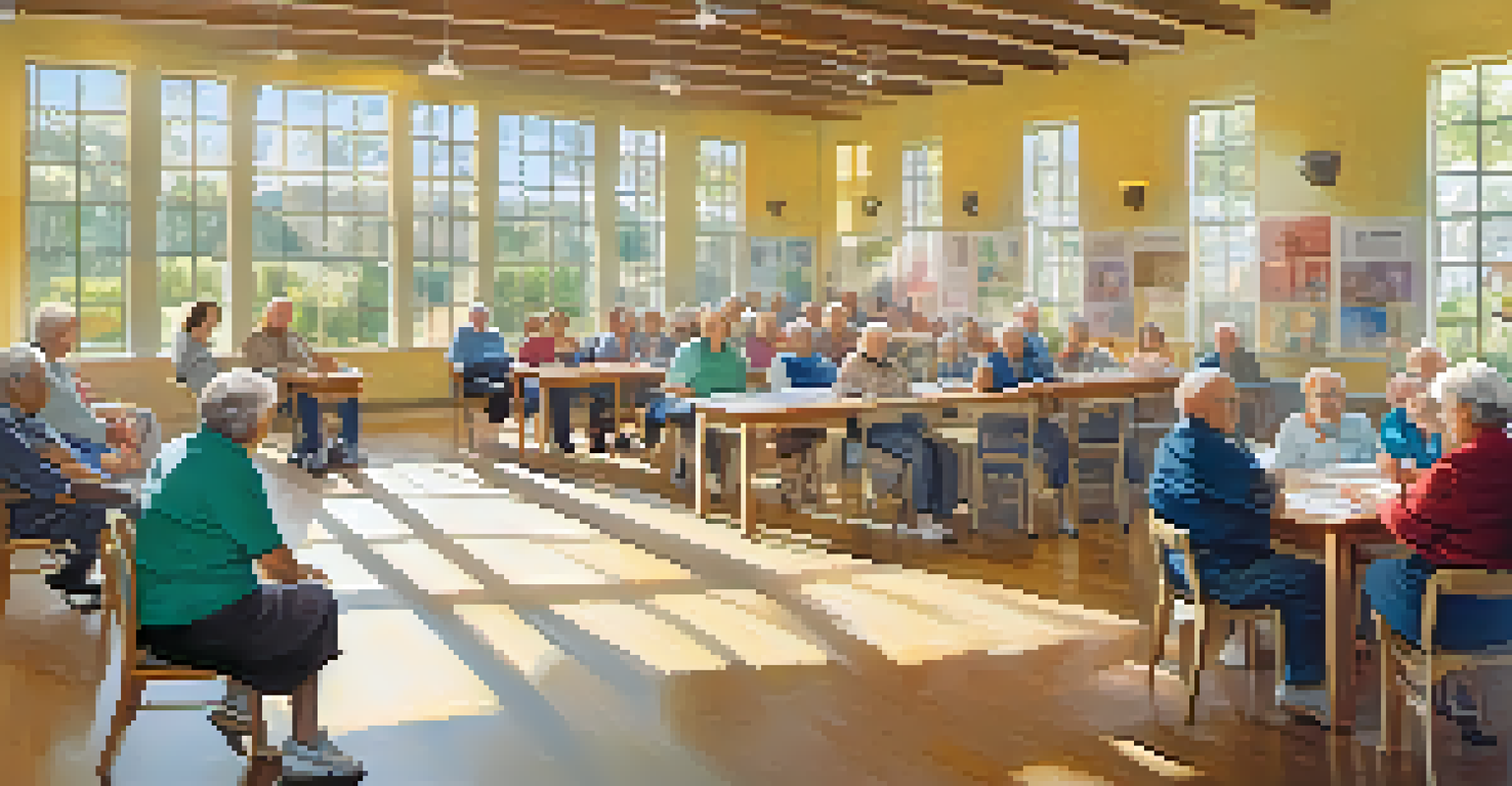Vaccination and the Aging Population: A Growing Need

Understanding the Aging Population and Their Needs
As people age, their immune systems naturally weaken, making them more susceptible to diseases. This vulnerability highlights the increasing importance of vaccinations for older adults. With a growing number of individuals reaching advanced ages, understanding their unique health needs becomes essential.
Vaccination is one of the most effective ways to prevent disease and promote health in our communities.
The aging population often deals with chronic conditions, which can complicate their health status. Vaccinations can help prevent illnesses that might exacerbate these conditions, allowing seniors to maintain a better quality of life. For instance, vaccines for influenza and pneumonia can significantly reduce hospitalizations among older adults.
Moreover, as life expectancy rises, so does the necessity for preventive healthcare measures. Vaccinations not only protect individuals but also reduce the burden on healthcare systems, making them a vital component of public health strategies.
Common Vaccines Recommended for Seniors
Several vaccines are particularly important for seniors, including the flu vaccine, shingles vaccine, and pneumococcal vaccines. The flu vaccine is recommended annually, as the strains of the virus can change from year to year. This simple shot can prevent severe complications that might arise from influenza, especially in older adults.

The shingles vaccine is another critical protection, as shingles can be extremely painful and lead to long-term complications. Many people are unaware that this vaccine is available, highlighting the need for awareness and education among seniors and their caregivers. It's a straightforward measure to help prevent a painful condition.
Vaccination Crucial for Seniors
As older adults face increased health vulnerabilities, vaccinations become essential to prevent diseases and maintain quality of life.
Lastly, pneumococcal vaccines protect against pneumonia and other serious infections, which can be particularly dangerous for the elderly. These vaccines can be lifesaving, and understanding their importance can empower seniors to take charge of their health.
The Impact of Vaccination on Public Health
Vaccination plays a crucial role in public health, especially for the aging demographic. When more seniors get vaccinated, it creates herd immunity, which protects those who cannot be vaccinated due to medical reasons. This collective shield is vital for maintaining community health.
An ounce of prevention is worth a pound of cure.
Moreover, widespread vaccination among older adults can lead to a decrease in healthcare costs. Fewer hospitalizations from vaccine-preventable diseases result in significant savings for both individuals and the healthcare system. This financial aspect cannot be overlooked, particularly in a time where healthcare costs are rising.
As we prioritize vaccinations, we also foster a healthier society, where seniors can lead active and fulfilling lives. The ripple effect of vaccinating older adults extends beyond individual health, affecting families and communities as a whole.
Barriers to Vaccination in the Elderly
Despite the clear benefits, there are several barriers that prevent seniors from getting vaccinated. One major issue is accessibility; some older adults may have difficulty traveling to vaccination sites, especially those with mobility challenges. Ensuring vaccines are available in convenient locations is critical.
Another barrier is misinformation or lack of awareness about the importance of vaccinations. Some seniors may believe they don't need vaccines, thinking they are only for children. Education campaigns targeting older adults can help dispel these myths and encourage proactive health measures.
Barriers to Senior Vaccination
Accessibility issues, misinformation, and financial concerns hinder seniors from receiving necessary vaccinations.
Additionally, financial concerns can deter seniors from seeking vaccinations. While many vaccines are covered by insurance, some individuals may not realize this. Providing clear information about costs and coverage can alleviate these worries and promote higher vaccination rates.
The Role of Healthcare Providers in Promoting Vaccination
Healthcare providers play a pivotal role in encouraging vaccinations among seniors. By initiating conversations about the importance of vaccines during check-ups, they can help dispel myths and address concerns. A simple dialogue can significantly influence a senior's decision to get vaccinated.
Moreover, healthcare professionals can assist in creating personalized vaccination schedules based on individual health needs. This tailored approach helps seniors understand which vaccines are relevant to them and why they should prioritize them. Personalization builds trust and motivates action.
Providers can also facilitate access by offering vaccinations at their offices or referring patients to nearby clinics. By making the process seamless, they remove barriers and encourage more seniors to take advantage of these vital health resources.
Community Initiatives to Increase Vaccination Rates
Community initiatives are essential in raising awareness and increasing vaccination rates among seniors. Local health departments and organizations can host vaccination drives, making it easier for older adults to receive their shots. These events often create a sense of community and support, encouraging participation.
In addition to drives, educational workshops can be organized to inform seniors about the benefits of vaccines. By providing accessible information in a friendly, engaging manner, communities can empower older adults to take charge of their health. Sharing testimonials and stories can make the message more relatable.
Community Role in Vaccination
Local initiatives and partnerships are vital in raising awareness and improving vaccination rates among the elderly.
Partnerships with local businesses, churches, and community centers can also facilitate outreach efforts. By leveraging these networks, communities can reach a broader audience and ensure that important health messages are delivered effectively.
Looking Ahead: The Future of Vaccination for Seniors
As we look to the future, the importance of vaccinations for seniors will continue to grow. With the aging population expected to increase significantly, addressing their health needs will be paramount. Innovations in vaccine development and delivery methods will be crucial in meeting these demands.
We may also see advancements in personalized vaccines tailored specifically for older adults. This could enhance the effectiveness of vaccinations and reduce side effects, making them more appealing to hesitant seniors. The future holds promise for improving health outcomes in this demographic.

Ultimately, fostering a culture of health awareness and proactive care will be essential. By prioritizing vaccinations and supporting seniors in their healthcare journeys, we can build a healthier, more vibrant society for everyone.